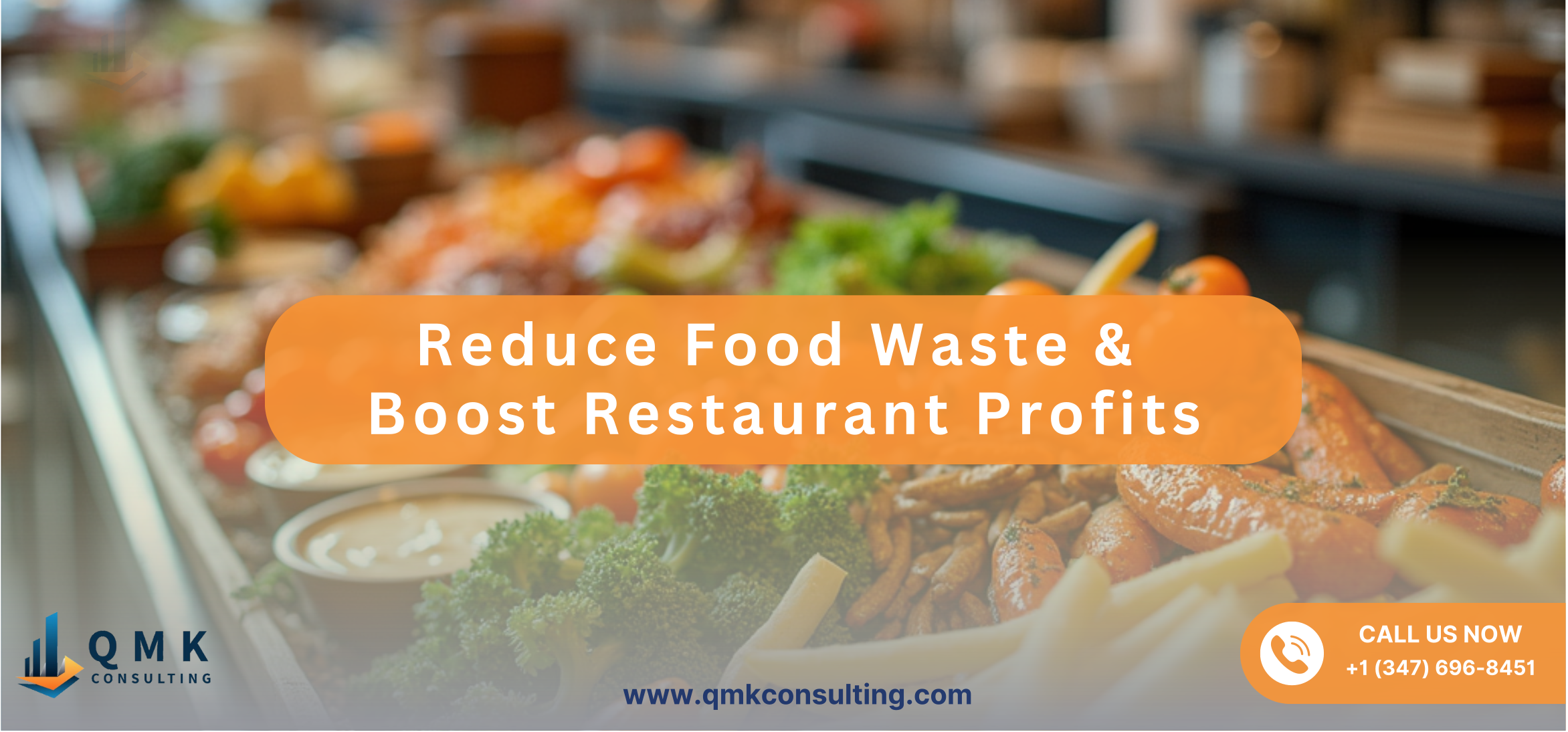
December 30, 2024 |Advisory


For restaurant owners, food waste isn’t just an environmental concern—it’s a profitability killer. Studies show that food waste can cost restaurants thousands of dollars annually, impacting their bottom line significantly. At QMK Consulting, we understand the financial pressures you face, and we’re here to help you turn challenges like food waste into opportunities for savings and growth.
In this post, we’ll explore practical strategies to reduce food waste while maintaining the quality and satisfaction your customers expect.
Every pound of wasted food represents not just the cost of the ingredients, but also labor, storage, and disposal expenses. Beyond these immediate costs, excessive waste can damage your profit margins and reputation for sustainability.
By reducing food waste, you can:
At QMK Consulting, we work with restaurant owners to identify cost-saving opportunities, including reducing food waste. We’ll help you:
Reducing food waste is more than simply a good business practice; it is also a wise financial decision. By employing these tactics, you may protect your earnings, streamline your processes, and demonstrate to your consumers that you are committed to sustainability.
Book a free consultation today!
Reducing food waste can save restaurants thousands of dollars annually. The exact amount depends on your current waste levels and the effectiveness of the strategies you implement. On average, restaurants can save between 5% and 10% of their food costs by addressing waste.
Several tools are available to help restaurants track and manage food waste, such as Leanpath, Winnow, and simple inventory tracking systems integrated into POS software. These tools provide data-driven insights to help you make informed decisions.
Yes! The federal government offers tax deductions for restaurants that donate edible surplus food to qualified organizations. At QMK Consulting, we can guide you through the process to maximize your savings while giving back to the community.
Educating your staff about the financial and environmental impact of food waste is key. Provide training on portion control, proper storage techniques, and creative ways to repurpose ingredients. A waste-reduction mindset should be part of your restaurant's culture.
We specialize in helping restaurant owners streamline their financial operations. By analyzing your financial data, we identify cost-saving opportunities, including waste reduction strategies. Our tailored solutions will help you save money and boost profitability.